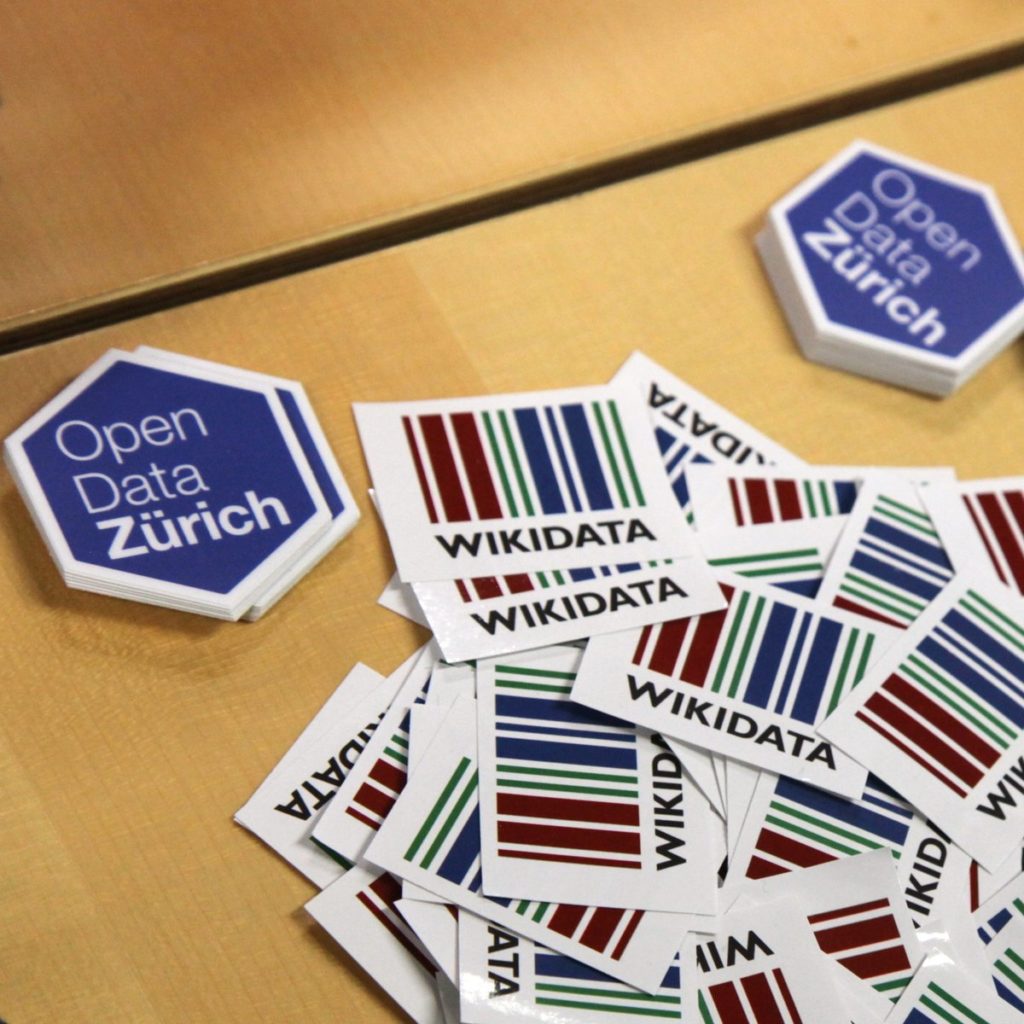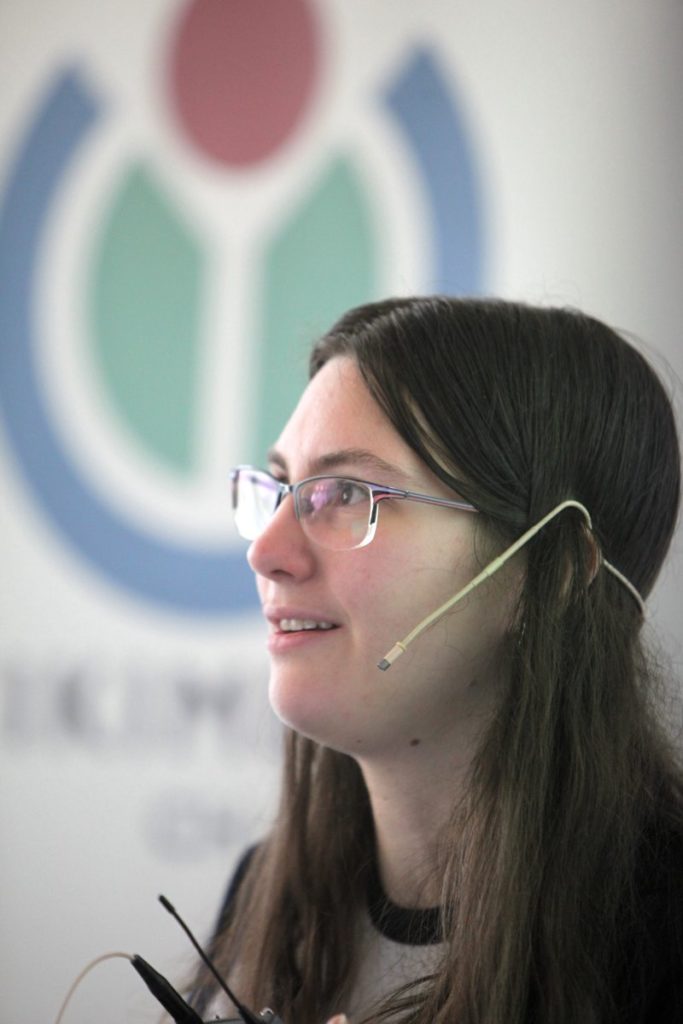On September 14, the Wikidata Zurich Workshop took place at IFI. The event organised by UZH, Open Data Zurich, Wikimedia Switzerland and Open Data CH, was attended by around 30 people coming from different backgrounds such as industry, governmental organisations and universities. The main goal of the workshop was to provide information and training about Wikidata, the “free knowledge base that anyone can edit and use“.
The workshop had a fully-packed program, that started with an opening session by Cristina Sarasua (researcher at UZH, active member of Wikimedia Switzerland and main organiser of the event), followed by a keynote by Léa Lacroix, project manager of Wikidata at Wikimedia Germany. Léa Lacroix presented the current status of the knowledge base, mentioned the underlying principles the make Wikidata possible, and showed interesting tools that reuse data from Wikidata and help editors and data providers add (e.g. Wikidata games), watch (e.g. COOL-WD and ORES) and interlink (e.g. Mix’n’Match) Wikidata. As Léa Lacroix highlighted, some of the challenges that the Wikidata community is currently facing include improving data quality, enabling a better integration with other Wikimedia products, dealing with the community and content massive growth and collaborating with the people and organisations that donate and reuse data.
The morning continued with an introduction to Wikidata, a talk about reading Wikidata dumps and a talk where Cristina Sarasua and Oleg Lavrovsky (founder of Datalets and active member of Open Data CH) gave an introduction to the API that can be invoked to get information about Wikidata’s content, edits and contributors programmatically. In the next session, Beat Estermann (researcher of the Berner Hochschule and organiser of the Open Cultural Data Hackathon in Lausanne) gave an online talk about the importance of Wikidata for GLAM (Galleries, Libraries, Archives and Museums).
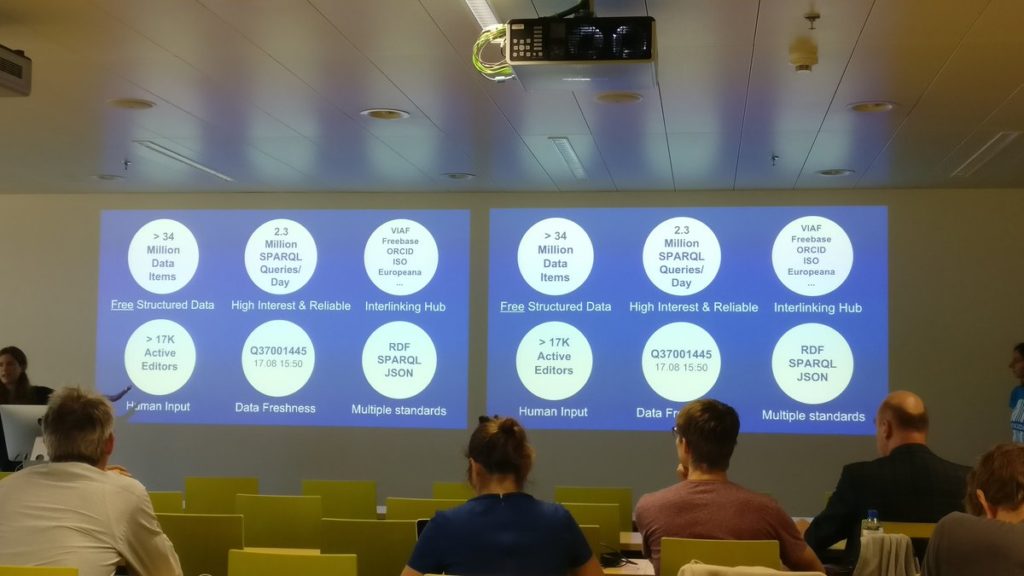
Photo by Leo Zorc https://twitter.com/leozorc/status/908217652094652416
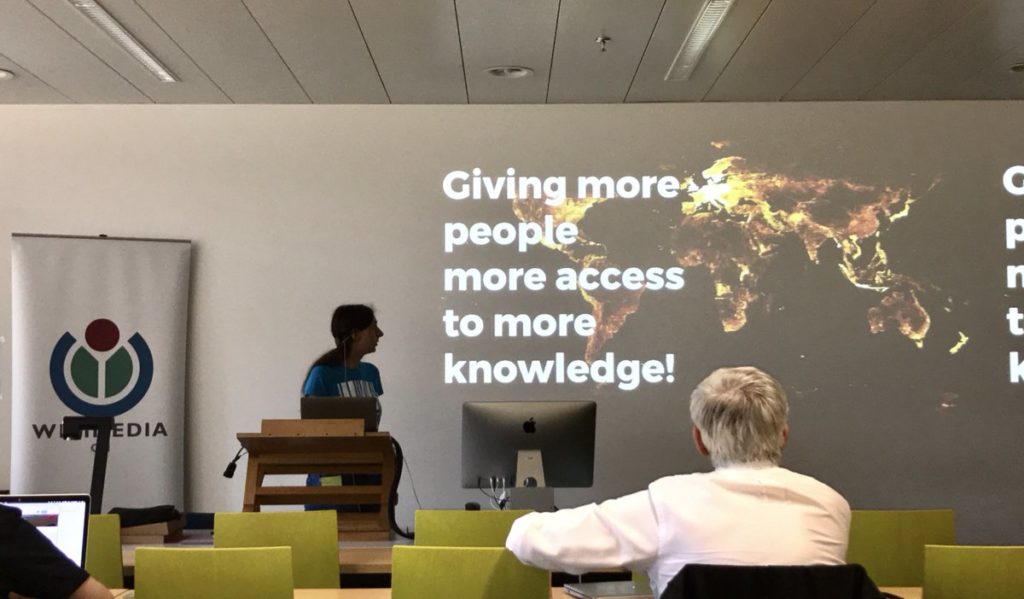
Photo by Open Data Zürich https://twitter.com/OpenDataZurich/status/908217856248217600
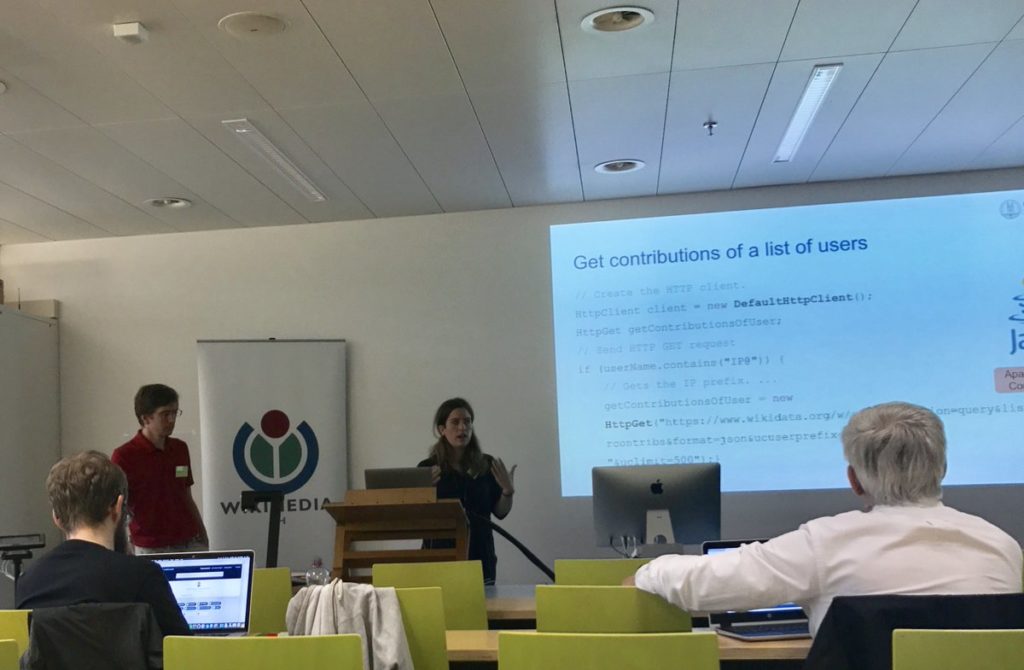
Photo by Open Data Zürich https://twitter.com/OpenDataZurich/status/908252190883696640
After the lunch break, that was nicely sponsored by Wikimedia Switzerland, Harmonia Amanda (experienced Wikidata editor with more than 2 million edits and active member of Wikimedia France) gave an introduction about querying Wikidata using SPARQL. The afternoon continued with a talk by Rama (active member of Wikimedia Switzerland and frequent Wikimedia Commons author), on the relation of Wikidata with Wikipedia and Wikimedia Commons. Afterwards, Cristina Sarasua gave a talk about the different ways in which data can be integrated with Wikidata. As she mentioned, the Open Data Zurich data (https://data.stadt-zuerich.ch/) is a great example of data that can complement Wikidata’s data, because it follows the notability criterion, it is of high quality data and it provides a more detailed information about sites in Zurich (e.g. districts of Zurich and fountains).
The last session was opened by Leon Kastler (software engineer at Avrios International AG, active member of Wikimedia Germany and co-organizer of the workshop), who gave an overview about developing bots in Wikidata. As he mentioned, bots can help humans edit large amounts of data, but should not be used for a one time batch data ingest. The last speakers were Radityo Prasojo (researcher at the University of Bozen-Bolzano), who explained how to develop tools for Wikidata with user scripts and showcased COOL-WD, and Finn A. Nielsen (associate professor at the Technical University of Denmark), who presented Scholia – a tool for browsing scholarly data within Wikidata.

Photo by Open Data Zürich https://twitter.com/OpenDataZurich/status/908328174077038592
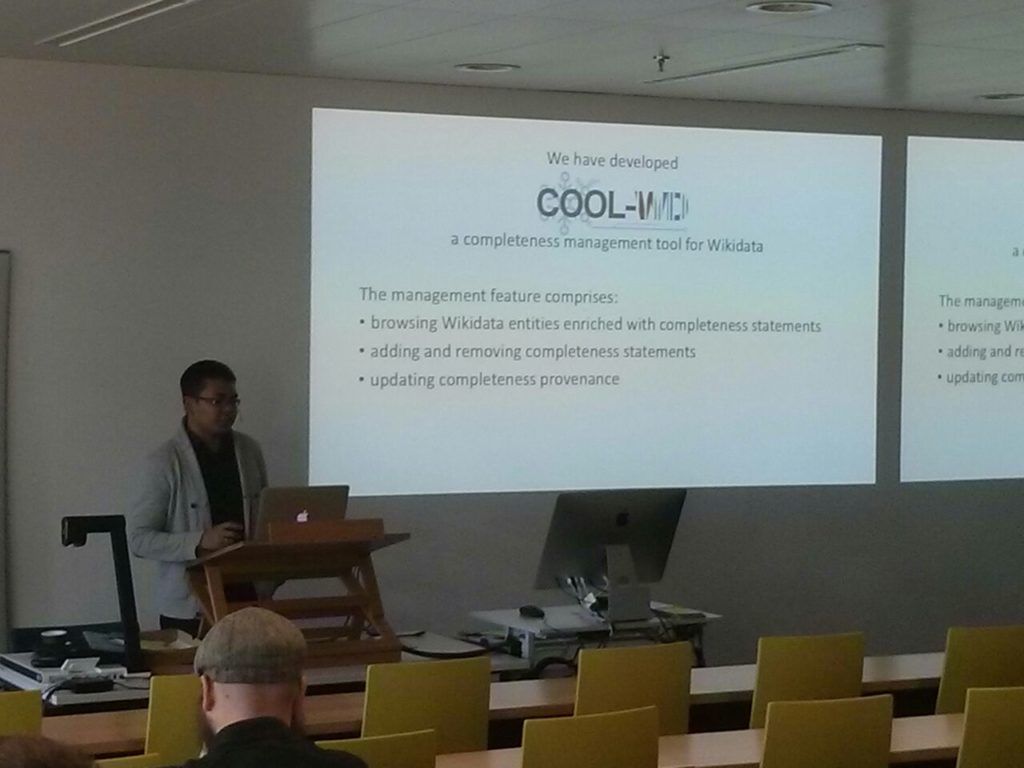
Photo by CSG
After the workshop, Cristina Sarasua and Leon Kastler gave a tech talk and participated as coders in HackZurich (http://digitalfestival.ch/HACK/schedule).
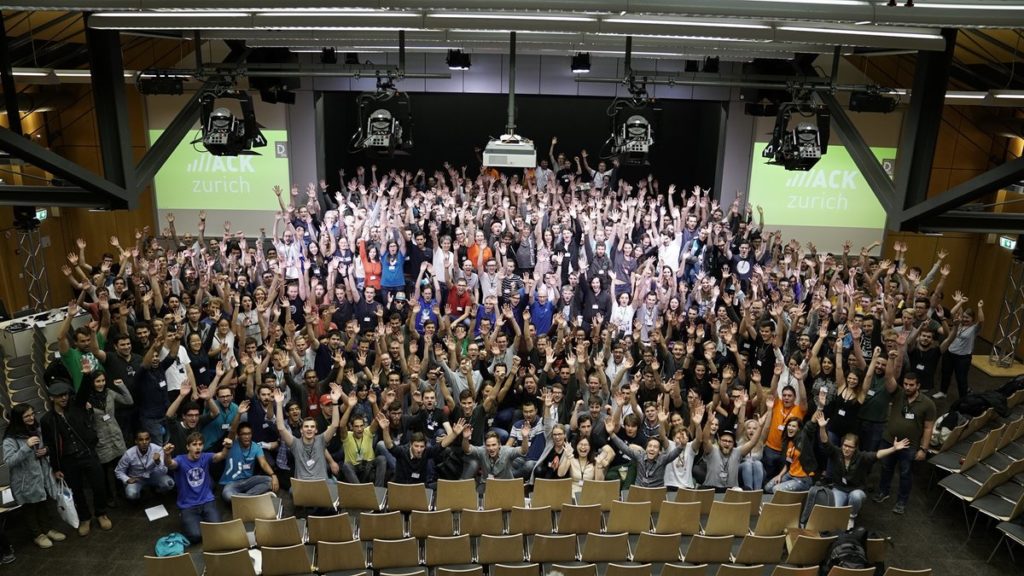
Photo by HackZürich https://twitter.com/hackzurich/status/908809403155009537
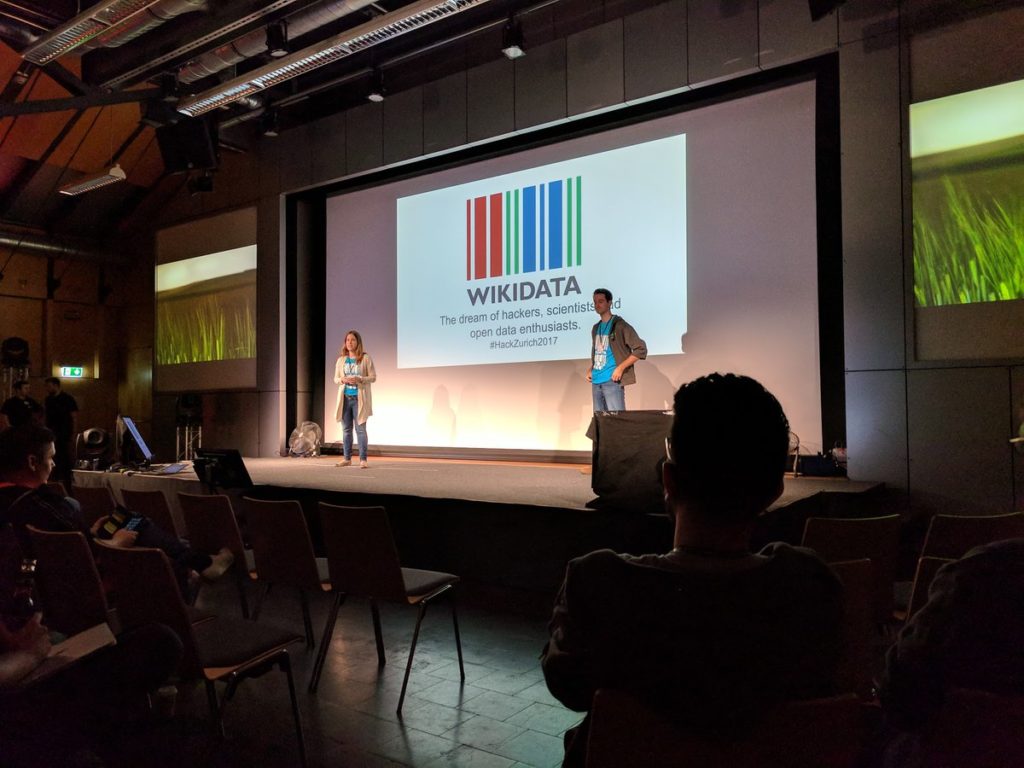
Photo by Yulia https://twitter.com/csarasuagar/status/909040849849372673
All the slides and other materials of the Wikidata Zurich workshop can be found at the event page. Given the success and interest shown by participants, the organisers plan to organise further events.
Special thanks go to all the people who helped us (Cristina Sarasua and Leon Kastler) in the organization: Marco Sieber and Michael Grueebler from Open Data Zurich, Ilario Valdelli and Ulrich Lantermann from Wikimedia Switzerland, and Muriel Staub from Open Data CH, as well as all our speakers and session leaders Léa Lacroix, Harmonia Amanda, Rama, Oleg Lavrovsky, Beat Estermann, Radityo Prasojo, Finn A. Nielsen. Hope to see you soon!

